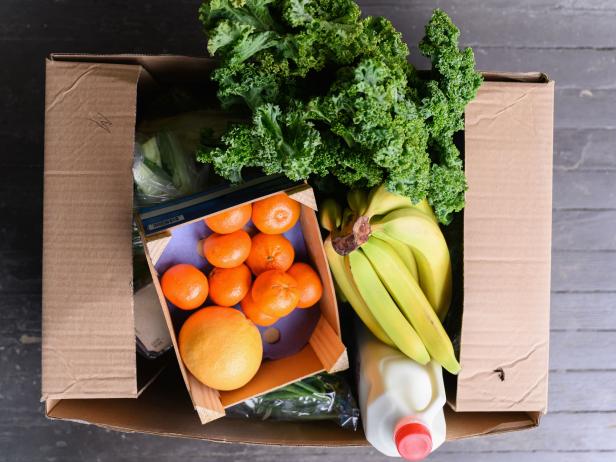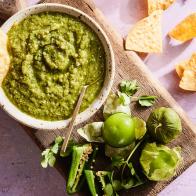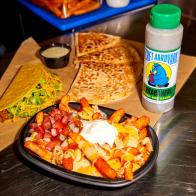5 Tips to Eat Healthier If You Live in an Area with Limited Food Access
Healthy eating is about more than just buying the right groceries.

Jamie Grill/Getty
When it comes to healthy eating, recommendations for grain bowls and smoothies often overshadow issues like someone's ability to feed themselves nutritious food. Racism and poverty, including a lack of resources in poor communities of color, significantly impact whether or not some communities can access affordable, quality food. Supermarkets may not be located within walking distance, and the foods available lack variety.
Growing up in the Bronx, I experienced first hand how food access can have a direct impact on food choices and nutrition education. In some neighborhoods, bodegas (corner stores) are the only option for buying fresh fruits and vegetables and options are extremely limited. Commuting an hour to another neighborhood is a big ask for someone who is a single parent, works long hours, and/or just doesn’t have the extra money to make that trip.
Wellness messaging that emphasizes “If you only have enough willpower, you can manifest perfect health and reverse your chronic conditions” completely misses the mark because it ignores the realities of so many people. It's important to understand and acknowledge all of the different factors that impact a person's food choices. For example, saying things like “Processed food is bad for you” is tone deaf and inaccurate.
If you live in an area with limited food access, here are five suggestions that may be helpful. Note that none of these address the root problem: systemic oppression, and it’s totally understandable if you’re not in the space to incorporate any of these suggestions right now. Health is multidimensional and it’s important to address your most urgent needs when thinking about what wellness looks like for you.
Buy Produce with Longer Shelf Life
Quality fruits and vegetables may be hard to come by. Buying produce that lasts long periods of time will cut down on trips to the supermarket and help with reducing food waste. Think apples, carrots, cauliflower, broccoli, zucchini, bananas, oranges and pears. Also try to read up on how to properly store different types of foods to reduce food waste.
Freeze What You Can
Preserving foods in your freezer is an excellent way to extend the life of foods, and the great thing is that you can freeze just about anything. Fruits, vegetables, dairy, cooked grains and even bread! If you know you’re not going to be eating something that easily goes bad within a few days, pack it up properly and throw it in the freezer. This will help to preserve its nutrients and the food will oftentimes taste so much better when it’s time to reheat. Some people find this surprising but take it from someone who freezes literally everything, frozen food tastes so much better than food that’s four days old.
Shop in Bulk
Buying in bulk is another great way to cut down on trips to the supermarket and save some money in the process. Aim for shelf-stable foods like grains, oils and canned goods. Keep in mind when these foods expire so you don’t overbuy!
Look for Food Delivery
Many supermarkets and online vendors now offer food deliveries that come right to your door. Oftentimes these delivery companies accept EBT cards and SNAP benefits and come from outside your zip code which opens up the options available!
Check Out Your Farmers Market
Here’s a guide that will help you locate the closest farmers market to you based on zip code. There are so many benefits to eating local and seasonal food, which is oftentimes more affordable than food that comes from other regions.
As a registered dietitian/nutritionist and Certified Diabetes Educator, Wendy Lopez, MS, RDN, CDCES is passionate about accessible and culturally relevant nutrition education. She is the co-host of the Food Heaven Podcast, and the co-founder of Food Heaven, an online platform that provides resources on cooking, intuitive eating, wellness and inclusion. When not working on creative projects, Wendy also provides nutritional counseling and medication management to patients with diabetes.
*This article was written and/or reviewed by an independent registered dietitian nutritionist.
Related Links:

































